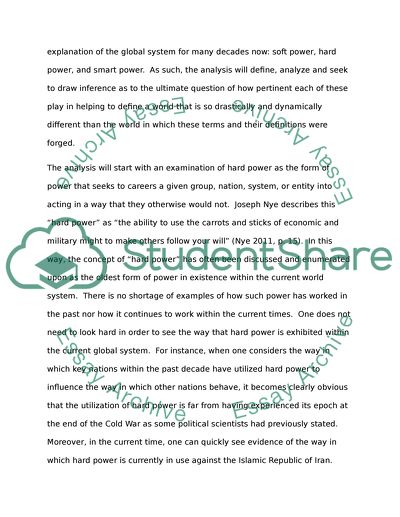Cite this document
(“In a world of shifting global power, how important are soft, hard and Essay”, n.d.)
In a world of shifting global power, how important are soft, hard and Essay. Retrieved from https://studentshare.org/military/1612895-in-a-world-of-shifting-global-power-how-important-are-soft-hard-and-smart-power
In a world of shifting global power, how important are soft, hard and Essay. Retrieved from https://studentshare.org/military/1612895-in-a-world-of-shifting-global-power-how-important-are-soft-hard-and-smart-power
(In a World of Shifting Global Power, How Important Are Soft, Hard and Essay)
In a World of Shifting Global Power, How Important Are Soft, Hard and Essay. https://studentshare.org/military/1612895-in-a-world-of-shifting-global-power-how-important-are-soft-hard-and-smart-power.
In a World of Shifting Global Power, How Important Are Soft, Hard and Essay. https://studentshare.org/military/1612895-in-a-world-of-shifting-global-power-how-important-are-soft-hard-and-smart-power.
“In a World of Shifting Global Power, How Important Are Soft, Hard and Essay”, n.d. https://studentshare.org/military/1612895-in-a-world-of-shifting-global-power-how-important-are-soft-hard-and-smart-power.


